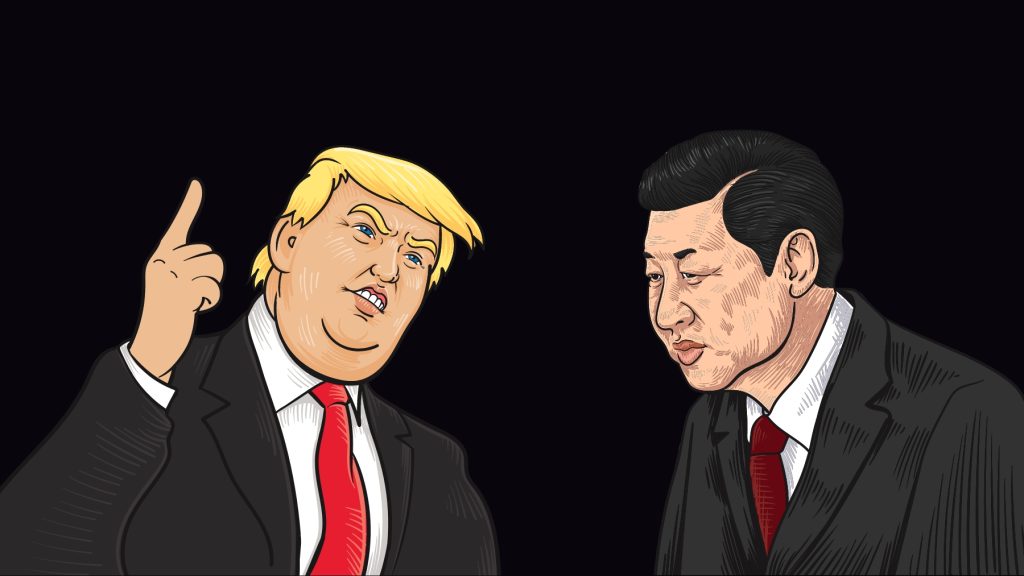
From the moment election results came out on November 6, Donald Trump’s win spiked stock gains, rising tensions with China that could lead to trouble during the Trump China trade reign.
Analysts predict challenges in the Trump China trade war, with a potential Chinese retaliation to US tariffs could very well affect American companies like
Apple and Tesla depend on China as both supplier and customer, this could create uncertainties for the companies in the time that the sector is thriving.
China Is Picking Up the Tab for Trump’s Trade War
According to Capital Economics Chief Market Economist John Higgins the S&P 500’s gain, partly driven by optimism over AI and other technology breakthroughs, is at risk of a strong response from Trump’s trade war with China policies.
“Perhaps the biggest risk to the S&P 500, given that a bubble in the index has been inflated by hype around AI, would be a retaliatory clampdown by China on US big tech firms’ operations in its territory,” stated Higgins.
Trump had suggested during his campaign a 60% tariff hit on Chinese goods from 25% required during his previous presidency. This would bring a wide retaliatory response from China and Trump trade war on tech firms that depend on both Chinese manufacturing and market sales.
Apple and Tesla are deeply entrenched into China’s market for production and sales. Any slight restriction by Chinese authorities could damage their operations during the Trump China trade tensions.
China’s Retaliatory Move
While an all-out crackdown by China would also hurt its own economy, already under strain, the thinking in some quarters is that China may adopt a more straightforward approach than a retaliation in toto have China avoid Trump trade war.
Higgins stated that “retaliating in that way would undermine the image China has been trying to cultivate of a responsible superpower.”
Aggressive action might risk Chinese access to key technologies, especially those that are AI related, if the US response is to drop down on tech exports.
Instead, Higgins said, China might make different moves. One likely consequence could be to hold back the export of important materials, including rare earth metals or even older generation semiconductor chips. According to Higgins, this would cause damage on supply chains that are necessary to American tech companies, but without wrecking China’s economy or its stance in the world.
What’s Next for Tech Investors?
While Trump’s policies that favor American companies through tax breaks and deregulation, a China trade war and Trump will threaten the stability of particularly technology companies operating globally.
Though the stock market heightened when Trump became Americas 47th president, investors are stopping themselves for turbulence in the event that might have China retaliate. For the moment, the outlook for the technology sector remains on hold, with markets balancing for hope of Trump’s domestic policies against the possibility of a new Trump China trade war.
If the geopolitical tensions remain at peak, American companies will also need to begin their expansions of supply chains and look for alternative markets as Apple tried to do in India in order to reduce their dependence on China. That could also speed up the trend toward domestic manufacturing for critical tech matters in a way that may reshape the tech world in the near future.
Inside Telecom provides you with an extensive list of content covering all aspects of the tech industry. Keep an eye on our Tech sections to stay informed and up-to-date with our daily articles.